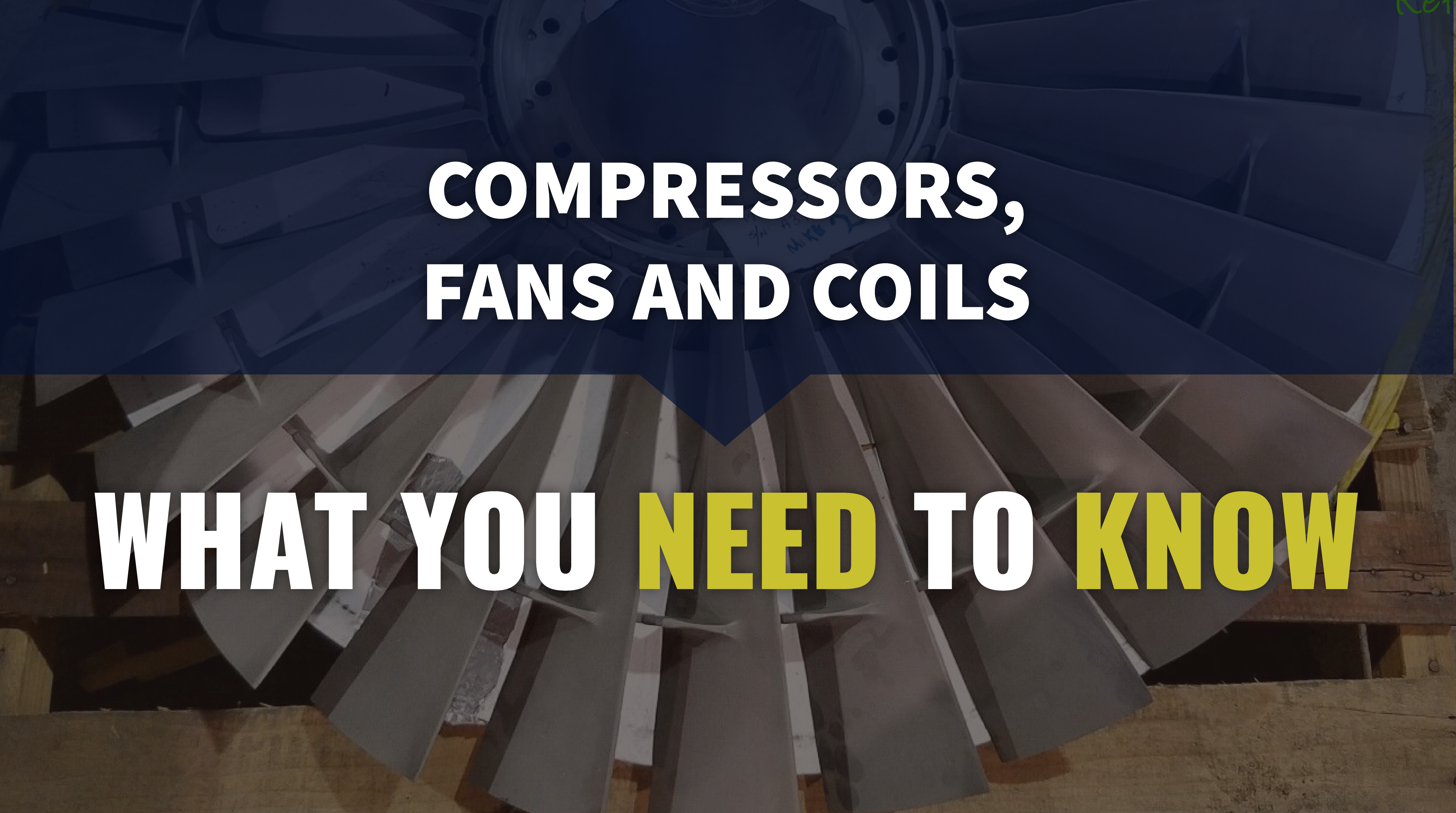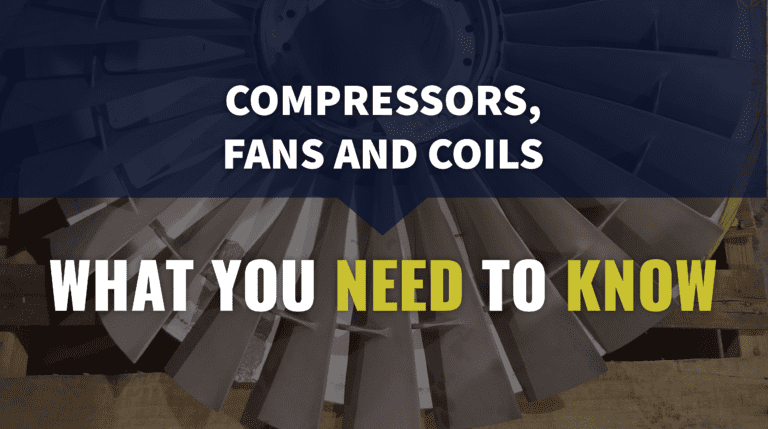
In an effort to keep your commercial HVAC and refrigeration systems in good shape, it is important to understand the difference between the various components. Even being able to identify individual components can help with troubleshooting and identifying problems before they grow into serious failures. In this guide, we will explore the differences between your condensing unit and your commercial compressor so that you will be able to correctly identify each piece of the puzzle and understand how they work together.
What is the Condensing Unit?
In a general sense, the condensing unit of your commercial HVAC system is the portion that resides outside of your building. This large box actually contains several pieces of equipment that are crucial to the operation of your system, including the compressor itself. Condensing units are found on both air conditioners and refrigeration installations, and they serve the purpose of interfacing between ambient outdoor air and the refrigerant in your system. The three main pieces of a standard condensing unit are the compressor, the condenser coil, and a fan. The compressor is the heart of the system which pumps refrigerant thru the system. The condensing coils are designed to provide ample surface area for the hot refrigerant to move through, and the fan blows cool air across the coils to carry away the heat, causing the refrigerant to condense. From there, the refrigerant flows back to the inside of your building to the evaporator where it can cool the inside air once more. All of these pieces work in concert to achieve the desired result.
The Compressor
As noted above, the commercial compressor is just one part of the total condensing unit, but it is arguably the most important piece of them all. More often than not, when an HVAC/R system fails, it has something to do with the compressor. There are several different types of compressors that are in use today, but regardless of the compressor design, this unit is responsible for compressing the refrigerant to a high-pressure gas and sending it forward through the system to complete another cooling cycle. Some compressors use a scroll type motion to suck refrigerant in toward the center of the scroll before pushing it forward. Other compressors use a series of shrinking cavities or vanes to compress the refrigerant. When the refrigerant leaves the compressor it is in a high-pressure hot gas ready to go thru the condenser.
What You Need to Know
Both the condensing unit and the compressor itself require regular maintenance for proper function. Maintenance for your compressor will include things like inspecting the exterior of the unit for signs of wear, making sure that the compressor has sufficient levels of oil and is properly lubricated, and inspecting any exposed belts for cracking or tears. Further internal inspections may be recommended by a compressor professional. As for the condensing unit as a whole, you should also have a system for inspecting the vents and surrounding area for signs of debris or buildup. Leaves, twigs and rodents are commonly found around condensing units, blocking vents or causing other problems.
Now that you see how your commercial compressor fits within the condensing unit, and how they work together to achieve optimum cooling, you can take a look at your own system and get familiar with the parts on your own. To learn more about commercial compressors and how they work, visit Compressors Unlimited today.












